
Estelle Gitta
Ch. François-Lehmann 2
1218 Grand-Saconnex
Tél: 022 798 27 20
Contact
© Editions Eclectica 2006-2009
Terror and Humiliation
How do we deal with feelings of humiliation when they become overwhelming? How can we prevent humiliated people taking revenge on defenceless victims? Joint authors Gilbert Holleufer and Philippe Cotter provide new insights into these pressing issues, in a world thrown off balance by the demise of the great ideological blocs and by the 9/11 attacks.
The first part of the book examines the role that feelings of humiliation play in armed conflicts (Afghanistan, Israel / Palestine, Bosnia). It is based on the Harvard Reports following the People On War survey commissioned by the International Committee of the Red Cross (ICRC) in 1999.
"In the following chapters I shall attempt to do justice to the efforts of all the participants in the People On War survey, who tried to make sense of what they had experienced, and to analyse the feelings of humiliation and impotence that had so deeply affected their lives. Their message is very valuable in that it portrays war as a tragedy with long term traumatic consequences, depriving victims as well as victimisers of the sense of purpose central to every human being's self-esteem. The knowledge these people have unwittingly acquired in these ill-understood situations of violence is well worth listening to."
Terror and Humiliation, p.13
© Editions ECLECTICA, 2010
Lebanon
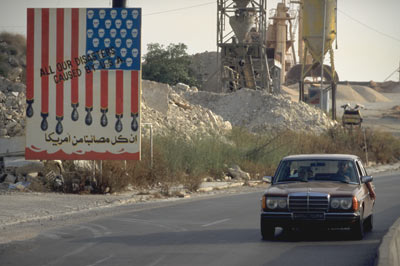
8 "All our disasters caused by USA." An anti-American sign stands along a road near Saida (south of Beirut).
© ICRC / Fred Clarke, 1999
El Salvador
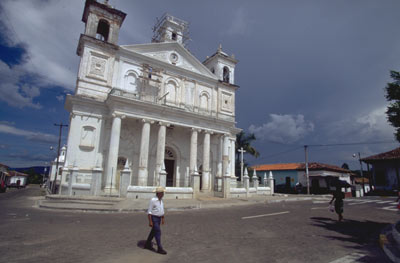
9 Salvadorian church heavily damaged during the war. In reconstruction.
© ICRC /Boris Heger, 1999
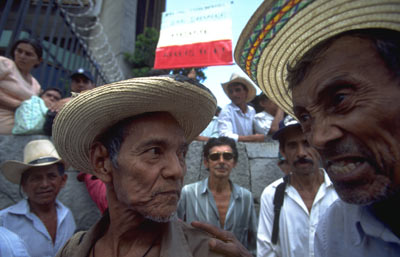
10 Demonstration of farmers. They are angry because they didn't receive any compensation when they dropped their weapons after the peace agreement was signed.
© ICRC / Boris Heger, 1999
Georgia / Abkhazia
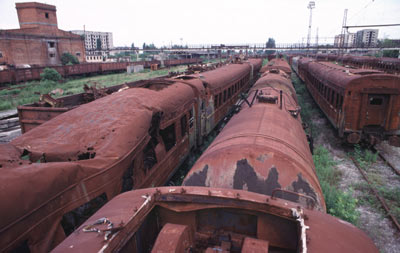
11 Main train station of Sukhumi (Abkhazia). Wreckages of trains hit during the fights.
© ICRC / F. de Sury, 1999
Nigeria

12 The surrender document, signed by Major General Philip Effiong, that resulted in the end of the Biafra War. In the background, Efiong is seated at his desk at his home (Ikot-Ekpene).
© ICRC / Fred Clarke, 1999
Other
countries in the People On War survey:
Somalia, the Philippines.
Somalia, the Philippines.
People On War
South Africa and...
Selection of photographs taken during the People On War survey commissioned by the International Committee of the Red Cross (ICRC). This large-scale consultation, involving 14.000 interviewees and 100 focus discussion groups, was carried out in twelve conflict zones to mark the 50th anniversary of the Geneva Conventions in 1999.
Photos selected by Philippe COTTER and Estelle GITTA
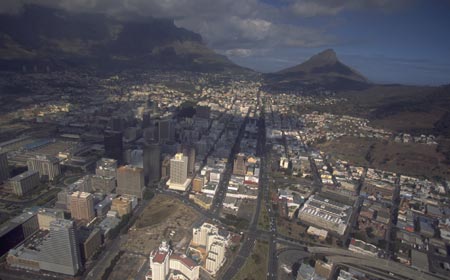
1 An aerial view of Capetown.
© ICRC / Fred Clarke, 1999
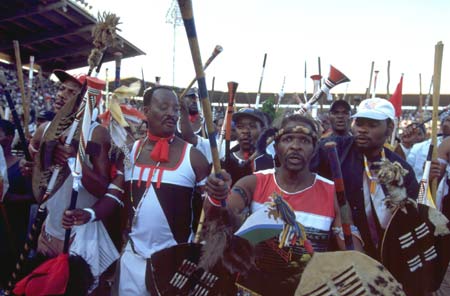
2 Participants at a Freedom Day rally (Durban).
© ICRC / Fred Clarke, 1999
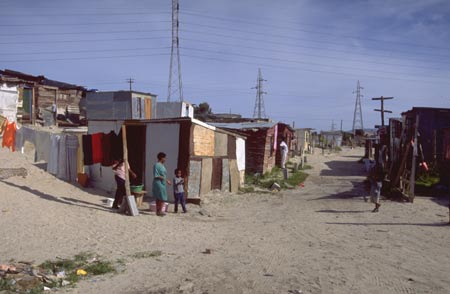
3 Children playing along a road in the township of Khayelitsha (outside Capetown).
© ICRC / Fred Clarke, 1999
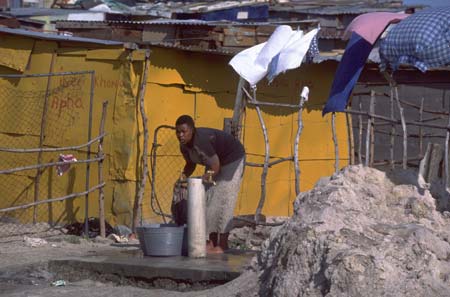
4 A woman doing laundry by her house in the township of Khayelitsha.
© ICRC / Fred Clarke, 1999
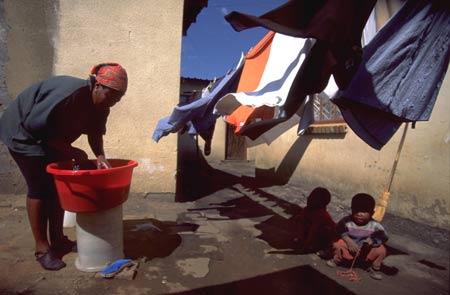
5 A woman washes clothes as her children play nearby in the township of Thokoza (south of Johannesburg).
© ICRC / Fred Clarke, 1999
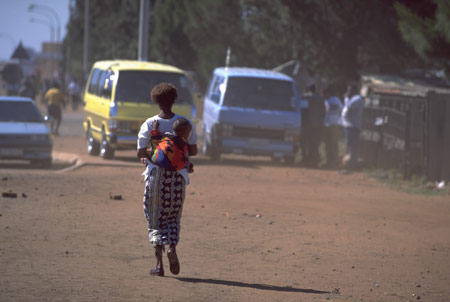
6 A mother and her baby walk along a road in the township of Thokoza.
© ICRC / Fred Clarke, 1999
Cambodia
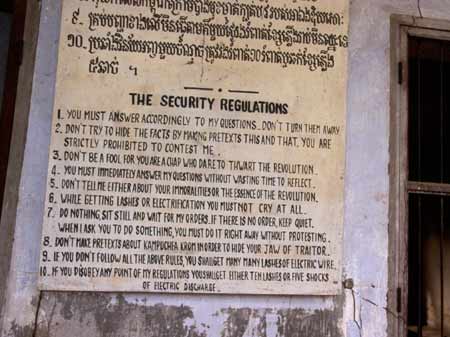
7 Detention and torture center of the Pol Pot regime (Genocide museum, Phnom Penh).
© ICRC / Heger Boris, 1999
"In the case of genocide â€" the attempted elimination of a whole group â€" the operation is so complex that it cannot take place without the support of consenting masses and efficient institutions, manipulated by a few extremists. This explains why genocide is a modern affliction: it could not have existed before the appearance of the modern state at the beginning of the 20th century."
Terror and Humiliation, p.68
© Editions ECLECTICA, 2010

